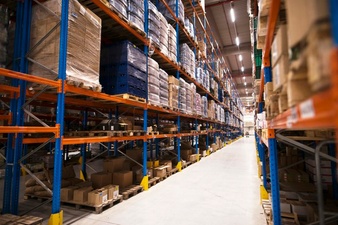Tag: customer satisfaction

Unpacking The Importance Of Quality Assurance In Customer Satisfaction
In the modern business landscape, the significance of quality assurance cannot be overstated. It serves as a critical component in ensuring customer satisfaction, a descriptor that goes beyond delivering a product or service that merely meets the basic requirements. Quality assurance is the process of systematic monitoring and evaluation of various aspects of a project, service, or facility to maximize the probability that minimum standards of quality are being attained by the production process. This article delves into the pivotal role that quality assurance plays in achieving customer satisfaction, and why businesses should prioritize implementing robust quality assurance strategies. Quality Assurance: What It Is And Why It's Important In essence, quality assurance is a set of practices that businesses use to deliver the best possible service or product in a given market. It involves checking and auditing products and services for quality at each step of their development process. This helps keep track of any issues or discrepancies along the way and ensures that customer requirements are met consistently. By conducting regular reviews and tests throughout the production process, any mistakes can be quickly identified and corrected. How Quality Assurance Impacts Customer Satisfaction The concept of customer satisfaction is widely acknowledged as a key indicator of a business's success. Quality assurance plays an essential role in achieving this goal since it helps to ensure that any product or service offered meets the expectations and needs of customers. This leads to higher levels of customer satisfaction, which can have a significant impact on your bottom line. Having an effective quality assurance system in place can also reduce the chances of customer dissatisfaction. By having a proactive approach to monitoring and testing products or services, businesses are better equipped to identify any issues before they become too big and start to affect customers. This allows them to take swift action and address any problems that arise. The Role Of QA In Building Trust With Customers Quality assurance is also important when it comes to building trust with customers. By having a systematic system in place that helps to ensure the highest quality of products and services, businesses can demonstrate their commitment to delivering an outstanding customer experience. This not only gives customers peace of mind but reinforces their confidence in the brand, leading to long-term loyalty and repeat business. Strategies For Quality Assurance Businesses should strive to develop comprehensive quality assurance strategies that are tailored to their specific needs. This includes compliance training for staff, frequent audits and reviews of products or services, as well as regular feedback from customers. By taking these steps, businesses can be confident that they are providing the best possible service and meeting customer expectations. Challenges Of Implementing Quality Assurance While quality assurance is essential for customer satisfaction, its implementation can be a complex and time-consuming process. It requires significant resources and an efficient workflow to ensure that it runs smoothly. Additionally, businesses may face difficulties in gathering accurate customer feedback or developing effective strategies for testing products or services. The Value Of Quality Assurance Overall, quality assurance can make a big difference in customer satisfaction and business success. It is an essential process for ensuring the highest standards of product or service, while also boosting customer confidence and loyalty to the brand. With the right strategies in place, businesses can ensure that they consistently meet customer expectations and achieve their desired outcomes. By leveraging quality assurance practices, businesses can create a competitive edge and ensure their success in the long term. The importance of quality assurance should be acknowledged, and businesses should make sure to invest sufficient resources into developing robust quality assurance strategies. This will help them stay ahead of the competition and maximize customer satisfaction. Now that it’s clear how important quality assurance is for customer satisfaction, businesses should focus on building efficient strategies that are tailored to their needs. So, if your business is looking to enhance its customer experience and increase its sales, consider investing in a quality assurance system that can help you reach and exceed your customers' expectations. Read Also: Make Your Business Popular Online 6 Top CRM For Small Businesses In 2019 How To Master Social Media For Businesses & Entrepreneurs
READ MOREDetails
6 Types of Equipment You Need in Your Warehouse
Focus on material handling if you want to concentrate on one idea to maximize warehouse efficiency, raise staff morale, and protect jobs all at the same time. There are a lot of moving parts in a factory. Quite literally. It's for this reason that sloppy material handling has far-reaching implications. It has an effect on production flow, employee safety, and employee morale, for better or worse. Understanding material handling systems and enforcing best practices, on the other hand, will dramatically increase the efficiency of your warehouse. In warehouses, assembly facilities, and distribution centers, material processing has a significant effect on productivity. An unreliable facility leads to mistakes and delays, eroding consumer satisfaction and making it easier for the competitors to steal your customers. Here are some tips to keep your warehouse running smoothly and efficiently. 1. Have a Command Center: Some warehouses can be a hodgepodge of conveyors, racking, and forklifts. To manage these moving parts, you will need to establish a command center. Having a central location or factory office will make it easy for managers and overseers to direct operations and will give workers a place to go to ask questions. This office can be located directly on the floor and should be enclosed to help block out the noise of the factory or warehouse floor. 2. Buy Forklifts: Any efficient warehouse dealing in a large volume of products, either big or small, will need at least one well-maintained forklift. Electric forklifts provide quiet, efficient, and exhaust-free service. You don't have to worry about the safety hazards of propane or gas when you have an electric forklift either. If your warehouse is tight on space, consider utilizing a stand-on forklift. Whichever you choose, make sure all employees are thoroughly trained on that specific machine. Also, you will need to keep detailed service and pre-use check logs for safety. 3. Create Storage Areas: You build storage units that are suitable for your warehouse in the same way that you choose storage units for various rooms in your home. The type, size, and position of your storage racks, bins, and shelves will be determined by the nature of your company. Let the warehouse room work for you rather than against you. Everything in your warehouse should be labeled for quality, communication, and protection. This also includes workspaces, safety risks, aisles, shelves, and products all need to be numbered. Forklifts, clearance heights, and capacity warnings, in particular, must include safety signs. 4. Use Automated Tools: Increasing the inventory of automated tools, such as those described in the engineering systems category improves material handling and performance. For example, if your company deals with a large number of products and has limited space, an automated storage and retrieval system (AS/RS) could be beneficial. This computer-controlled device stores and retrieves merchandise from pre-determined warehouse locations automatically. 5. Use Scanners: RFID scanners have a number of advantages over conventional barcode scanners. RFID scanners, unlike barcode scanners, do not require line-of-sight access, reducing the amount of material handling. Furthermore, RFID scanners can detect inventory from a distance of up to 40 feet for a fixed reader, 20 feet for a handheld reader, and over 100 feet for an active UHF RFID device. RFID scanners allow warehouses to collect more data about their activities, paving the way for more material handling improvements. 6. Implement a Warehouse Management System: A warehouse management system provides you with insight into your entire warehouse process. Although a WMS has numerous advantages, it is particularly useful in material handling because of the use of advance ship notices. When a warehouse receives an ASN, it is notified that shipments are on their way, allowing them to prepare ahead by scheduling workers and freeing up equipment. A warehouse can be a complex place with many moving parts. Having the right tools and equipment for your business can help keep your warehouse running smoothly and efficiently. Read Also: Best Essential Tips While Renting a Warehouse in Mumbai Best Uses for Stainless Steel in Construction Maintaining Productivity: The Basics of Industrial Safety
READ MOREDetails















